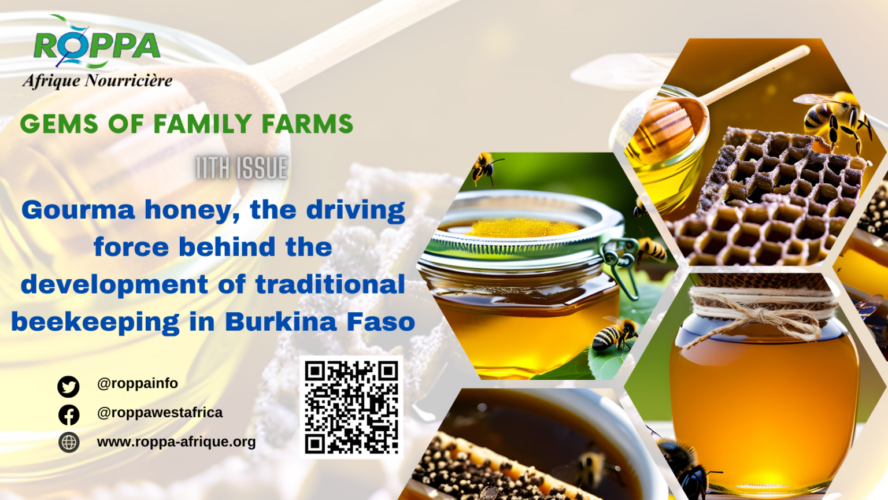The Gourma honey, a flagship product of the Eastern region of Burkina Faso, is the result of an ancestral beekeeping practice. In the past, beekeeping was an artisanal activity, with honey mainly intended for family consumption or for cultural rites. However, in 1986, a Swiss missionary based in Fada N’Gourma saw the economic potential of this activity and encouraged a group of twelve peasant beekeepers to band together to produce honey on a larger scale.
The group, which obtained its creation receipt in 1991, experienced significant development that required its transformation into a cooperative in 1997 to meet the new market realities. Today, the “SELINTAANBA” cooperative, which means “United by grace” in the Gulmacéma language, has more than 500 member beekeepers in the Eastern region.
The Gourma honey has become a specific product of the region and is among the driving sectors. The value of honey has increased thanks to the activity of the beekeepers grouped in the cooperative. The production of the Apicultural Center has evolved significantly since its opening in 1993 to reach today (figures from 2012) fifty-seven (57) tons of liquid honey.
This remarkable transformation is not only an economic success, but also a victory for sustainable development. By encouraging beekeeping, this initiative contributes to the preservation of local ecosystems, as bees play a crucial role in pollination. Moreover, by providing a stable and sustainable source of income to local beekeepers, it contributes to poverty reduction and the improvement of living conditions in the region.
We invite you to download the full document to learn more about this inspiring initiative. You can do so by following the same link: The Gourma Honey
Together, we can learn, share, and implement sustainable practices for a better future. We firmly believe that stories like that of the Gourma Honey can inspire other communities around the world to capitalize on their own resources and traditions to create economic opportunities while preserving the environment.
This article is part of a series produced by ROPPA which highlights initiatives by small-scale farmers. Read more at: https://roppa-afrique.org/news/

